— Julia Meraji, Debate Intensive ’17-’18
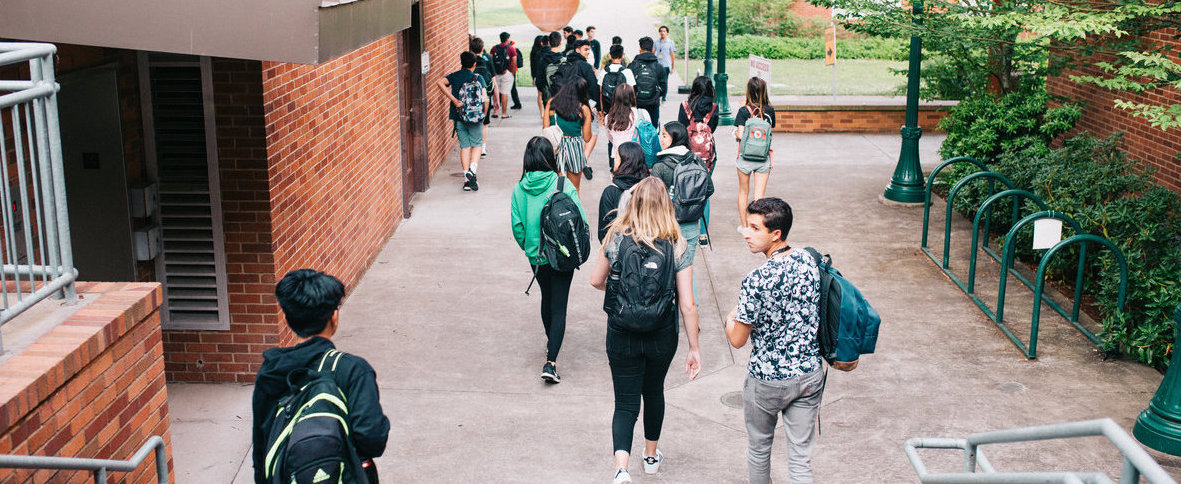
Lab Groups and Drills
Lab leaders… balanced being serious and productive with being light-hearted and fun to be around. They were all incredibly knowledgeable and their different areas of expertise complemented each other really well… Our intense focus on drills and practice rounds made this camp significantly more helpful than others.
— Gautam Iyer, Debate Intensive ’18
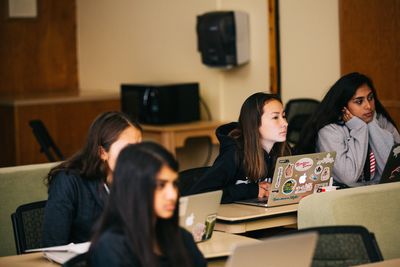
Lab groups are students’ home base at camp. Students are placed in labs according to their skill-level. Each lab has 12 students paired with three instructors and meets daily. The Debate Intensive’s 4:1 student-to-staff ratio ensures that each student can learn the material at their own pace.
Lab time focuses on lectures, drills, and research. In lab, students will be introduced to advanced new strategies and positions and practice those skills immediately in exercises guided by the instructors. Students will also spend lab time strengthening their case-writing and preparation skills by crafting new arguments they can deploy in their practice debates and during the regular debate season.
Practice Debates
Practice debates were perfect opportunities to execute technical and argumentative techniques taught to us in lab…specific feedback tailored to each speech helped me discover my strengths and weaknesses immensely.
— Rhys Moon, Debate Intensive ’19
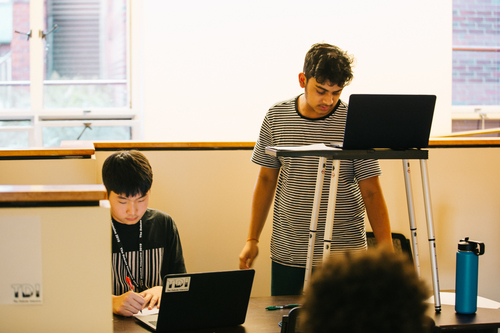
By the end of camp, our students will have debated in over a dozen practice rounds, each followed by detailed comments from an instructor. Practice debates give students a chance to try out arguments they lack experience with, outside the high-stakes environment of a debate tournament. After every round, students redo speeches from the debate to ensure that feedback is implemented immediately.
Starter Packets
The starter packet allowed students to practice defending and refuting a myriad of position types, but kept the focus of camp on learning about debate, as opposed to frantically trying to craft positions without learning how best to debate them.
— Madeleine Conrad-Mogin, Debate Intensive ’17-’18
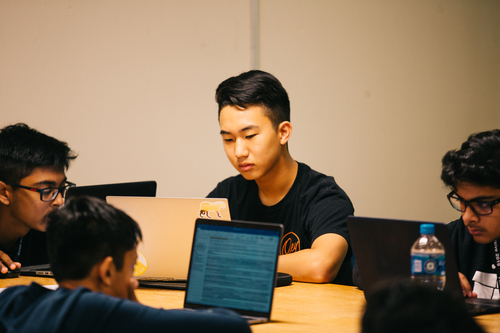
Unlike other LD camps, The Debate Intensive provides its students with a starter packet containing several pre-written cases on the selected camp topic. This allows students to begin their practice debates at the start of camp, allowing our students to have more practice debates than any other camp. The packet also helps students get the most from their practice debates, as it ensures debates will center around thoroughly prepared and high-quality arguments.
Along with the starter packet, students spend part of lab working on a research project to produce cases of their own that they can deploy in their practice debates and even the competitive season.
Mentorship
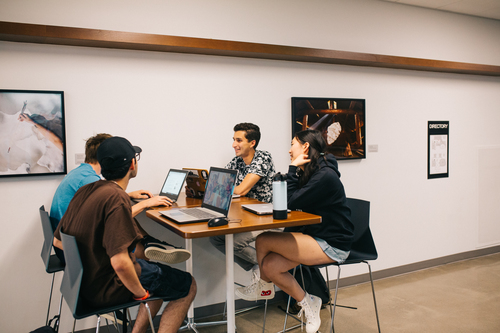 Mentor time was extremely helpful to my camp experience and I am very grateful that my mentor was so amazing! Mentoring ensured that I could go over concepts and understand them by the next lab.
Mentor time was extremely helpful to my camp experience and I am very grateful that my mentor was so amazing! Mentoring ensured that I could go over concepts and understand them by the next lab.— Felicity Park, Debate Intensive ’18
The Debate Intensive’s mentorship program gives students the chance to work one-on-one with an instructor of their choice. Mentor time allows students to clarify concepts discussed in lab and work with debaters outside of their peers in lab.
Elective Lectures
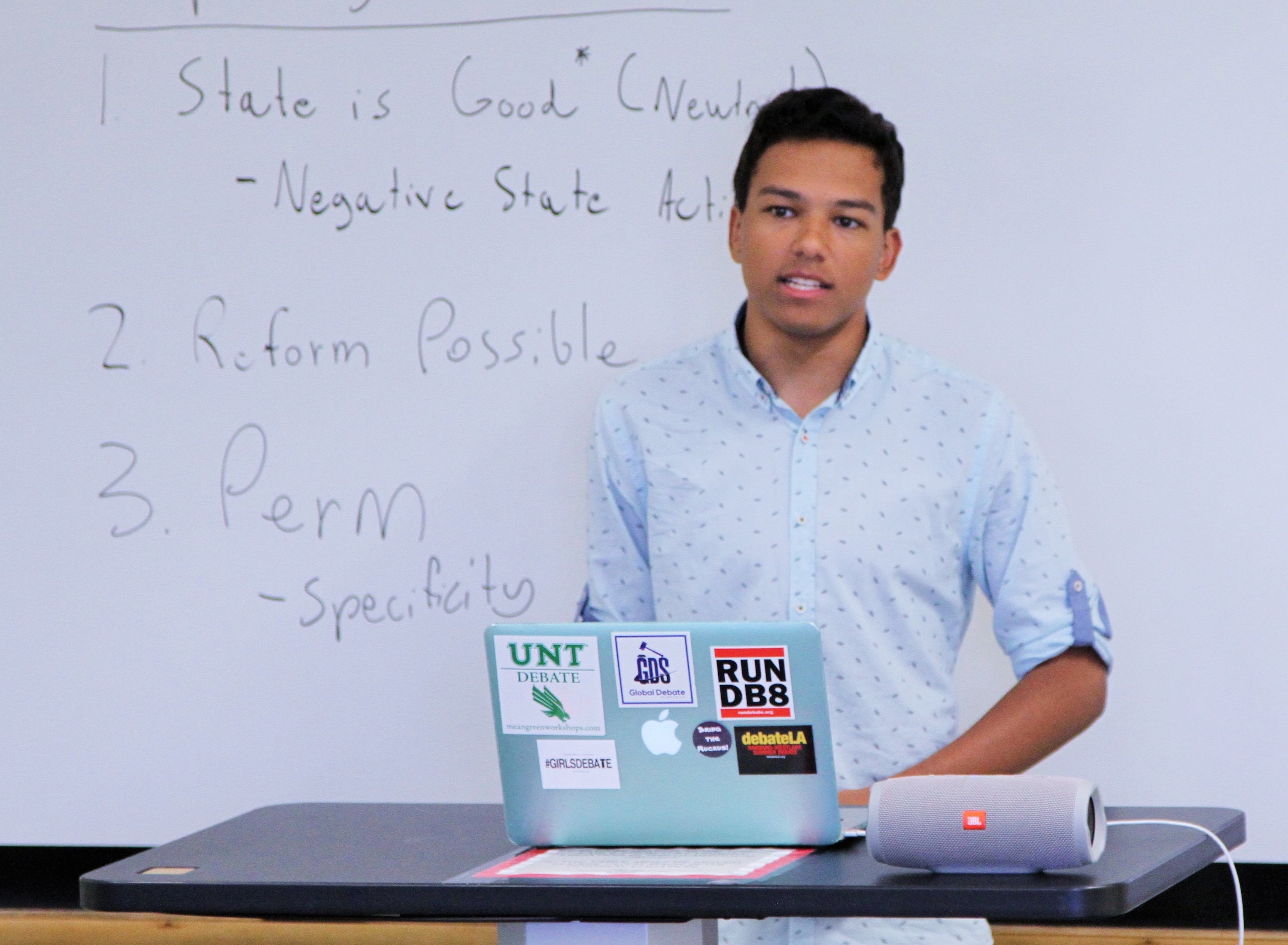 They all were really helpful in furthering my debate knowledge… The instructors gave amazing tips during electives that I will definitely use this debate season.
They all were really helpful in furthering my debate knowledge… The instructors gave amazing tips during electives that I will definitely use this debate season.
— Sonal Sharma, Debate Intensive ’18
Elective lectures students the opportunity to learn from our instructors in their area of debate expertise. Students can select a lecture to attend from a variety of options each day, supplementing the concepts they have learned in lab. Lectures typically focus on one popular argument or strategy – past titles include “Hegemony and Militarism,” “Advanced Kant,” “Debating Meta-Theory,” and “Afro-Pessimism.”
The Policy Lab
Students in the policy lab will receive the same individualized instruction as the Lincoln-Douglas debate labs. Labs will focus on lectures, drills, and research. Outside of lab time, students will participate in mentor sessions, practice debates, and electives. Novice student curriculum will be designed around the 2023-24 NDCA novice packet.
Daily Schedule
Each day, students will attend lectures and lab, work with mentors, and have practice debates from 9 AM to 8 PM, with breaks for lunch and dinner. An example of a typical weekday at camp might look like this:
8 AM – 9 AM: Breakfast (Residents only)
9 AM – 10:30 AM: Elective lecture
10:30 AM – 12 PM: Lab time
12 PM – 1 PM: Lunch
1 PM – 4 PM: Practice debates
4 PM – 5 PM: Lab time
5 PM – 6 PM: Dinner
6 PM – 8 PM: Lab/Mentor time
On Saturdays, academic activities begin late and end early, with a fun activity scheduled for the evening. Sunday is our Fun Day and includes no academic activities. More details are available in the Camp Life section of our FAQs page.
